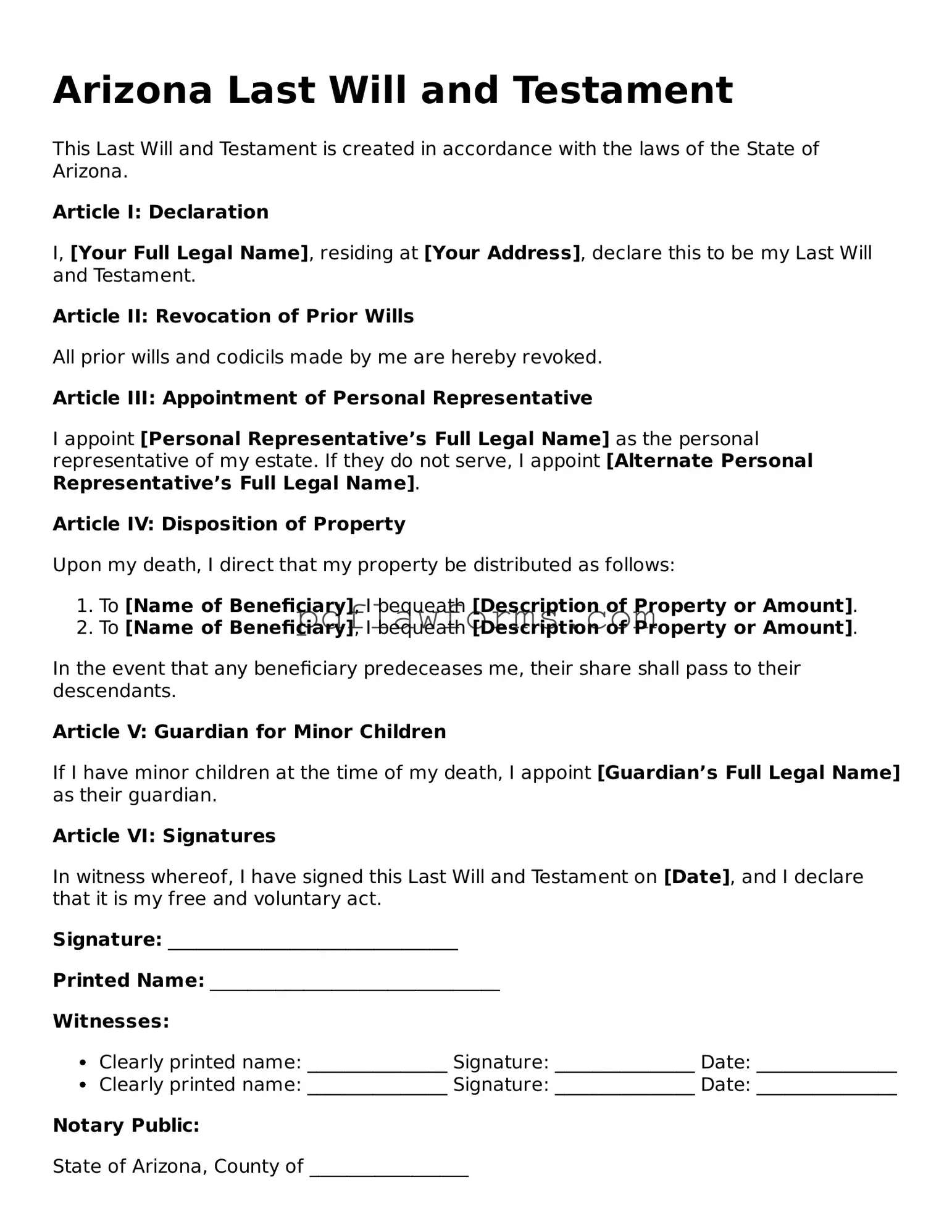Last Will and Testament Form for the State of Arizona
A Last Will and Testament in Arizona is a legal document that outlines how a person's assets and affairs should be handled after their death. This form allows individuals to specify their wishes regarding the distribution of property, guardianship of dependents, and other important matters. Understanding and completing this form is crucial for ensuring that your desires are honored, so take the first step by filling out the form below.
Make My Document Online

Last Will and Testament Form for the State of Arizona
Make My Document Online
You’re halfway through — finish the form
Edit and complete Last Will and Testament online, then download your file.
Make My Document Online
or
⇩ Last Will and Testament PDF
